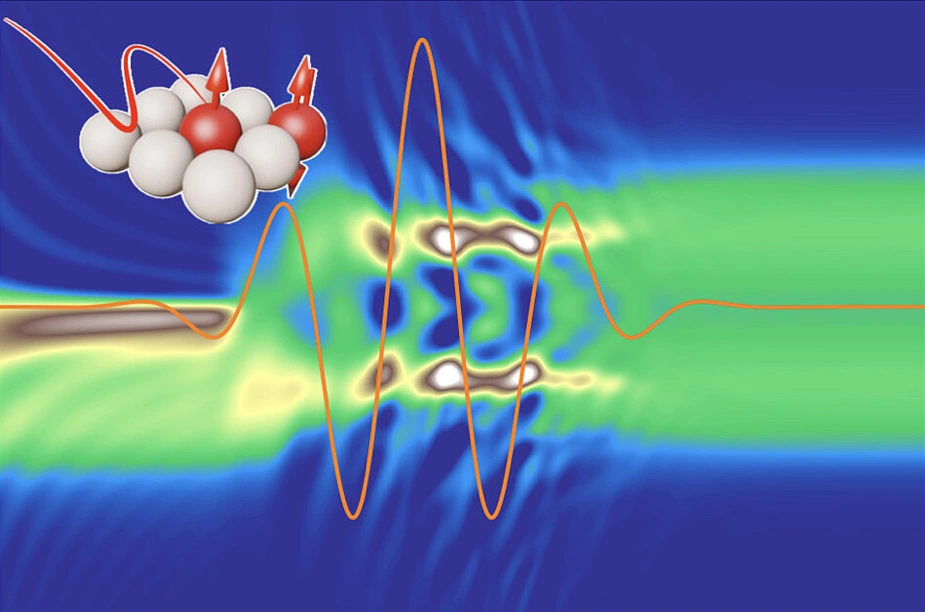Ultrafast excitations in correlated systems
Team of researchers presented new ideas for ultrafast multi-dimensional spectroscopy of strongly correlated solids
An international team of researchers from the European XFEL together with colleagues from the Max Born Institute in Berlin, Universities of Berlin and Hamburg, The University of Tokyo, the Japanese National Institute of Advanced Industrial Science and Technology (AIST), the Dutch Radboud University, Imperial College London, and Hamburg Center for Ultrafast Imaging, have presented new ideas for ultrafast multi-dimensional spectroscopy of strongly correlated solids. This work has now been published in Nature Photonics.
“Strongly correlated solids are complex and fascinating quantum systems in which new electronic states often emerge, especially when they interact with light,” says Alexander Lichtenstein from Hamburg University and Eu-XFEL. Strongly correlated materials, which include high-temperature superconductors, certain types of magnetic materials, and twisted quantum materials among others, both challenge our fundamental understanding of the microcosm and offer opportunities for many exciting applications ranging from materials science to information processing to medicine: for example, superconductors are used by MRI scanners.
This is why understanding the hierarchy and the interplay of the diverse electronic states arising in strongly correlated materials is very important. At the same time, it challenges our experimental and theoretical tools, because transformations between these states are often associated with phase transitions. Phase transitions are transformations that do not develop smoothly from one stage to the next but may occur suddenly and quickly, in particular when the material is interacting with light.
What are the pathways of charge and energy flow during such a transition? How quickly does it occur? Can light be used to control it and to sculpt the electron correlations? Can the light bring the material into a state that the material wouldn’t find itself in under the usual circumstances? These are the types of questions that can be addressed with powerful and sensitive devices like X-ray lasers such as the European XFEL in Schenefeld near Hamburg, and with the modern optical tools of attosecond science. (1 attosecond = 10-18 second or the billionth part of a billionth second. In one attosecond, light travels less than a millionth of a millimeter.)
In their work, the international team now presents a completely new approach that makes it possible to monitor and decipher the ultrafast charge motion triggered by short laser pulse illuminating a strongly correlated system. They have developed a variant of ultrafast multi-dimensional spectroscopy, taking advantage of the attosecond control of how multiple colors of light add to form an ultrashort laser pulse. The sub-cycle temporal resolution offered by this spectroscopy shows the complex interplay between the different electronic configurations and demonstrates that a phase transition from a metallic state to an insulating state can take place within less than a femtosecond – i.e. in less than one quadrillionth of a second.
“Our results open up a way of investigating and specifically influencing ultrafast processes in strongly correlated materials that goes beyond previous methods,” says Olga Smirnova from the Max Born institute and Berlin TU, awardee of the Mildred Dresselhaus prize of the Hamburg Centre for Ultrafast Imaging, “we have thus developed a key tool for accessing new ultrafast phenomena in correlated solids.”
Publication:
Nature Photonics (2024): Sub-cycle multidimensional spectroscopy of strongly correlated materials
V. Valmispild, E. Gorelov, M. Eckstein, A. Lichtenstein, H. Aoki, M. Katsnelson, M. Ivanov, O. Smirnova
Contact:
Max Born Institute for Nonlinear Optics and Short Pulse Spectroscopy (MBI)
Prof. Dr. Mikhail Ivanov
+49 30 6392-1210
mikhail.ivanov(at)mbi-berlin.de
Prof. Dr. Olga Smirnova
+49 30 6392-1340
olga.smirnova(at)mbi-berlin.de
Press release MBI, 23 January 2024
